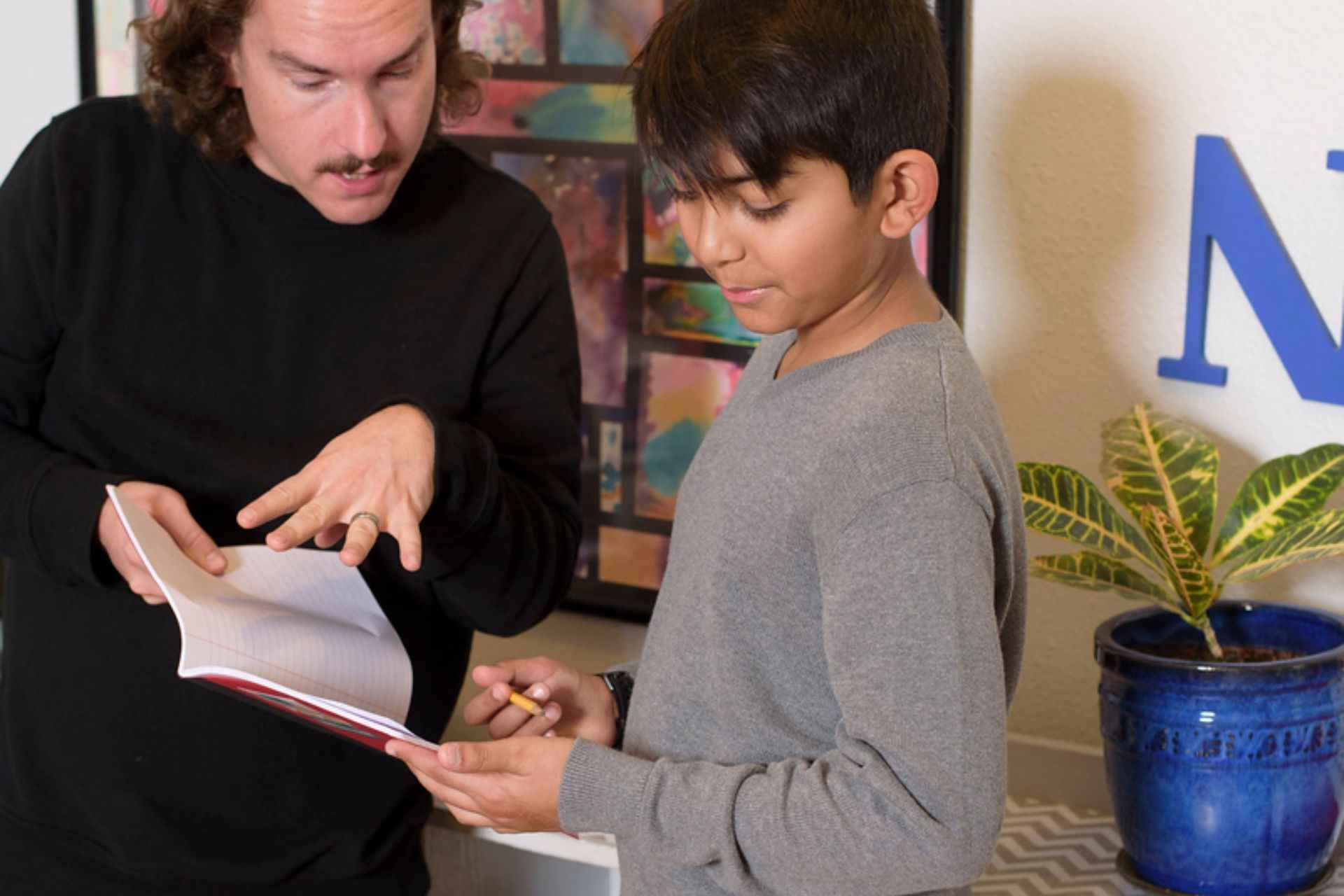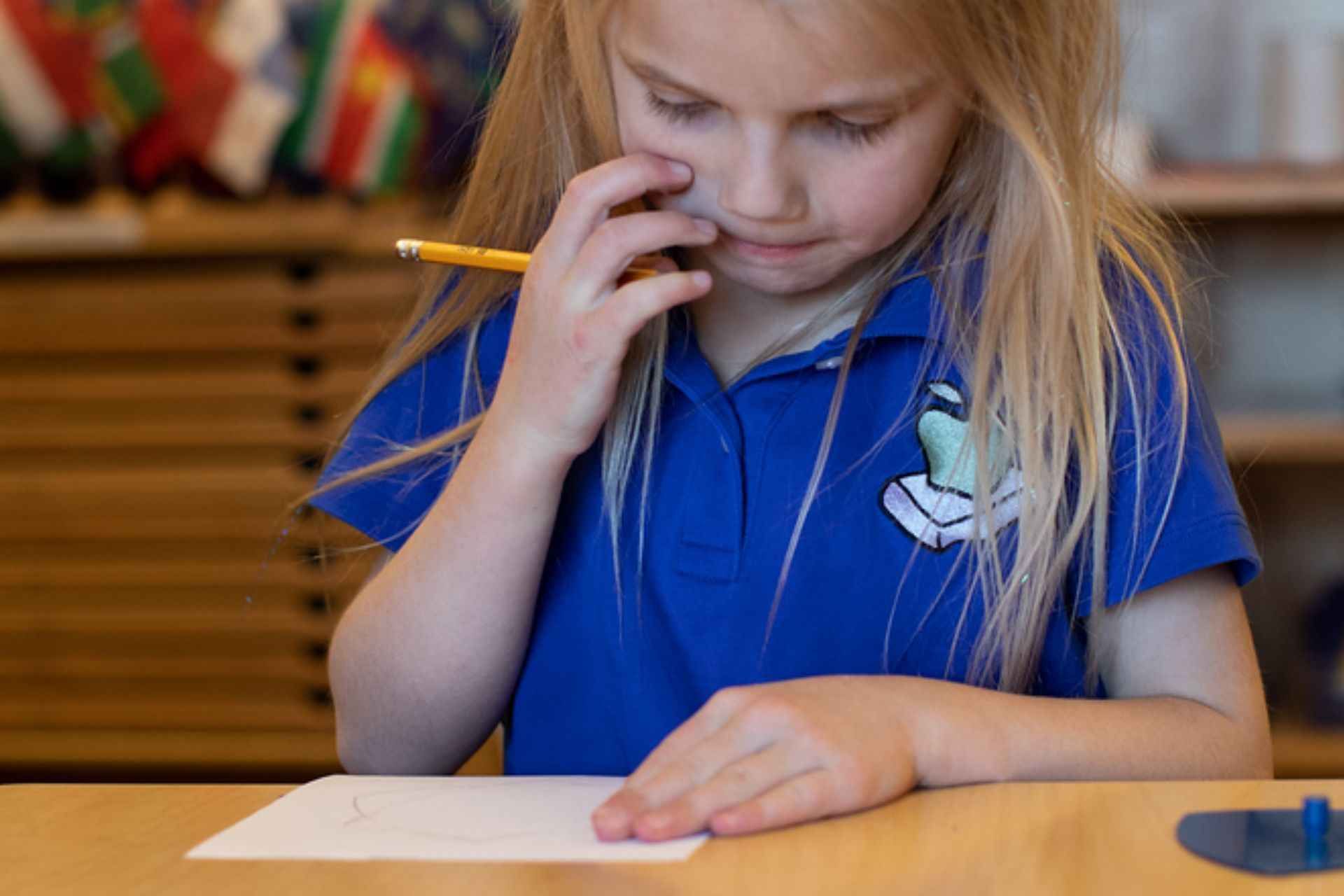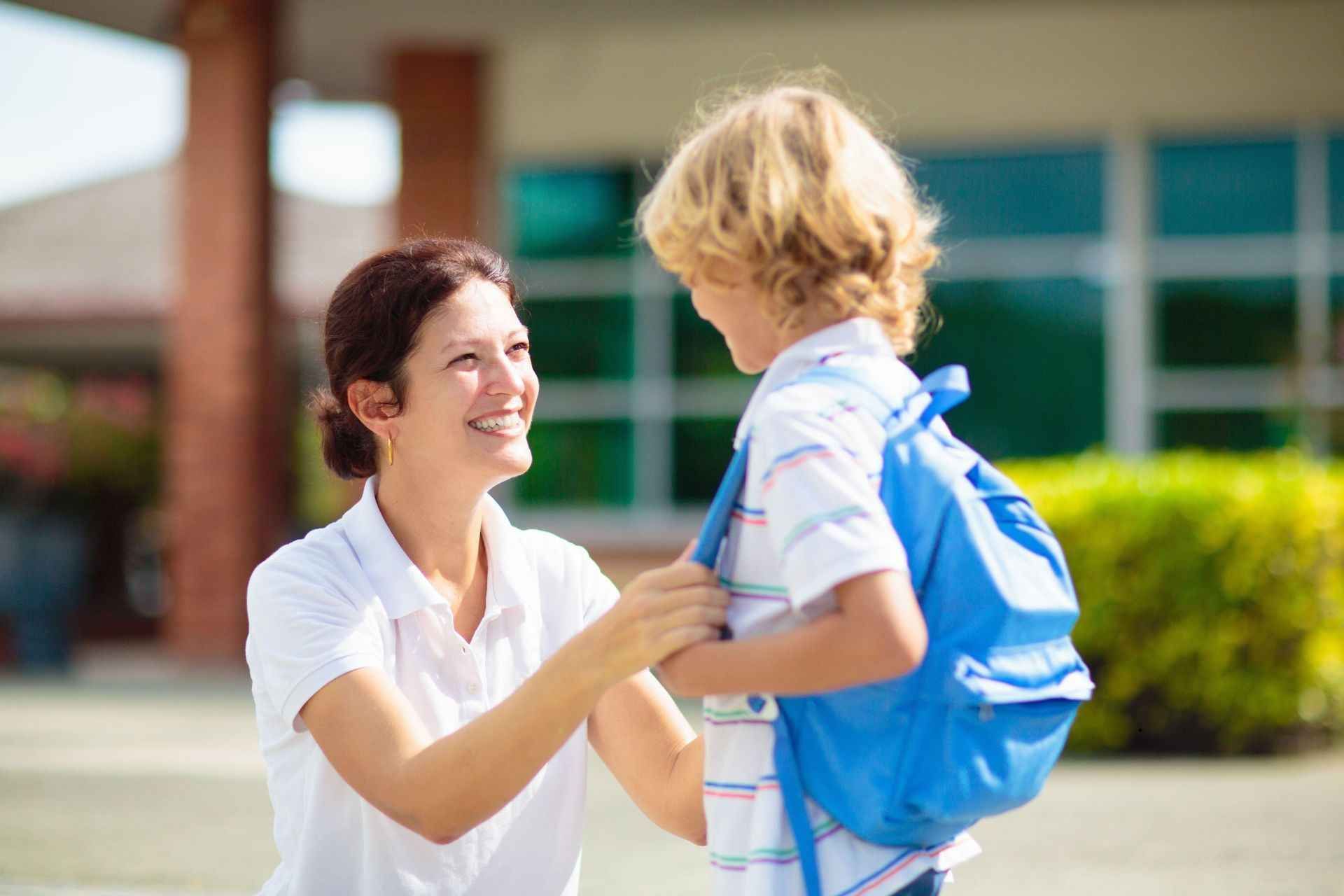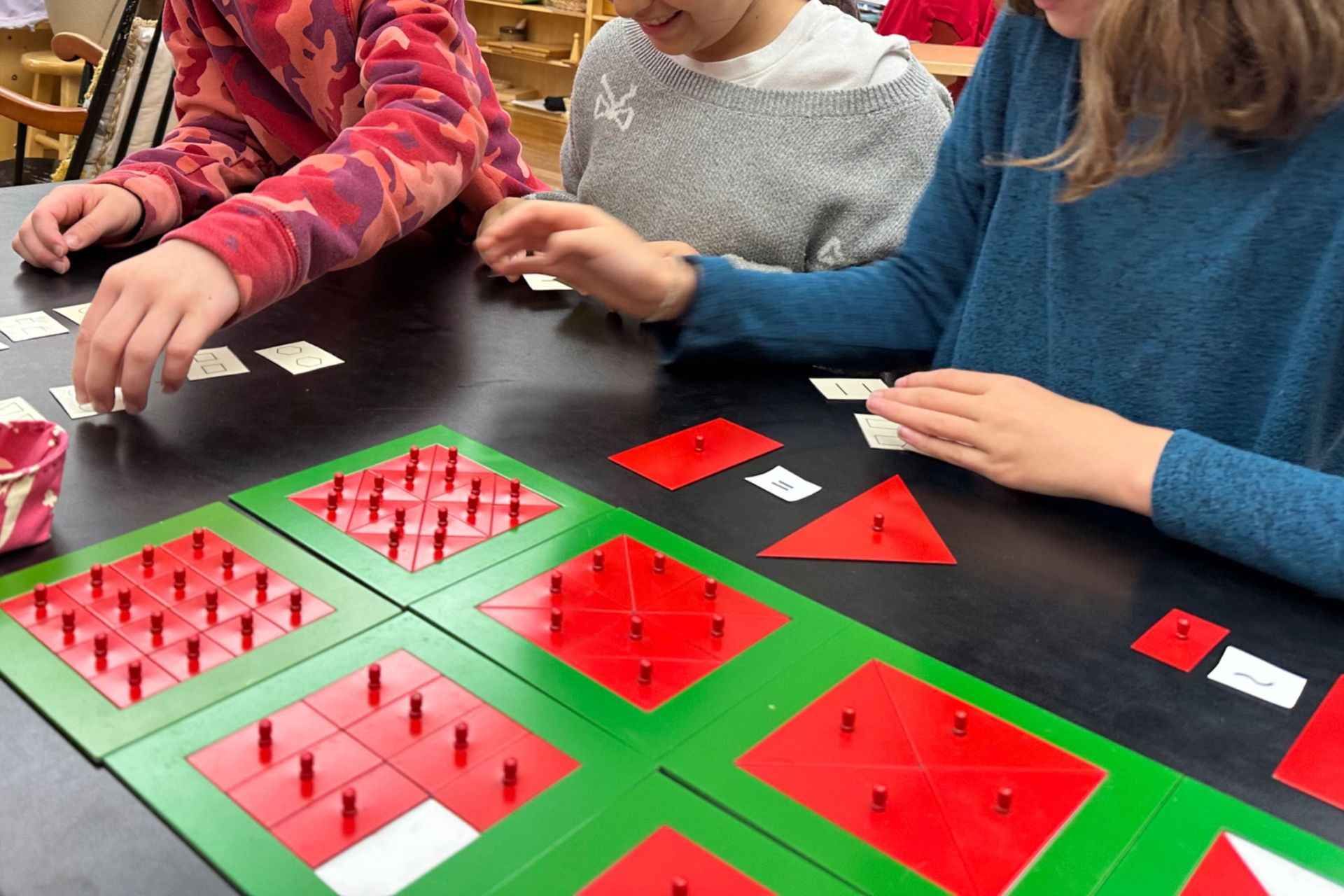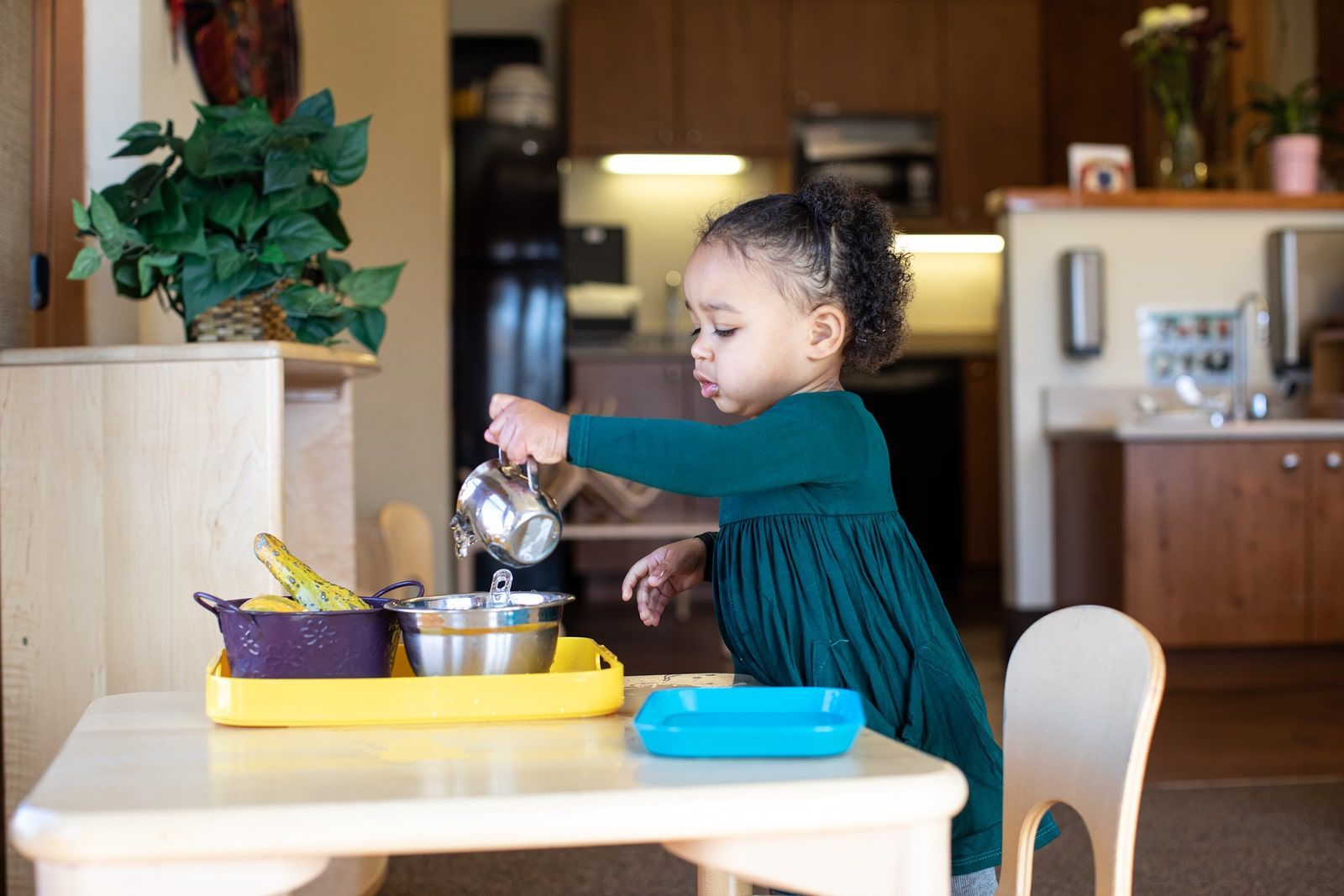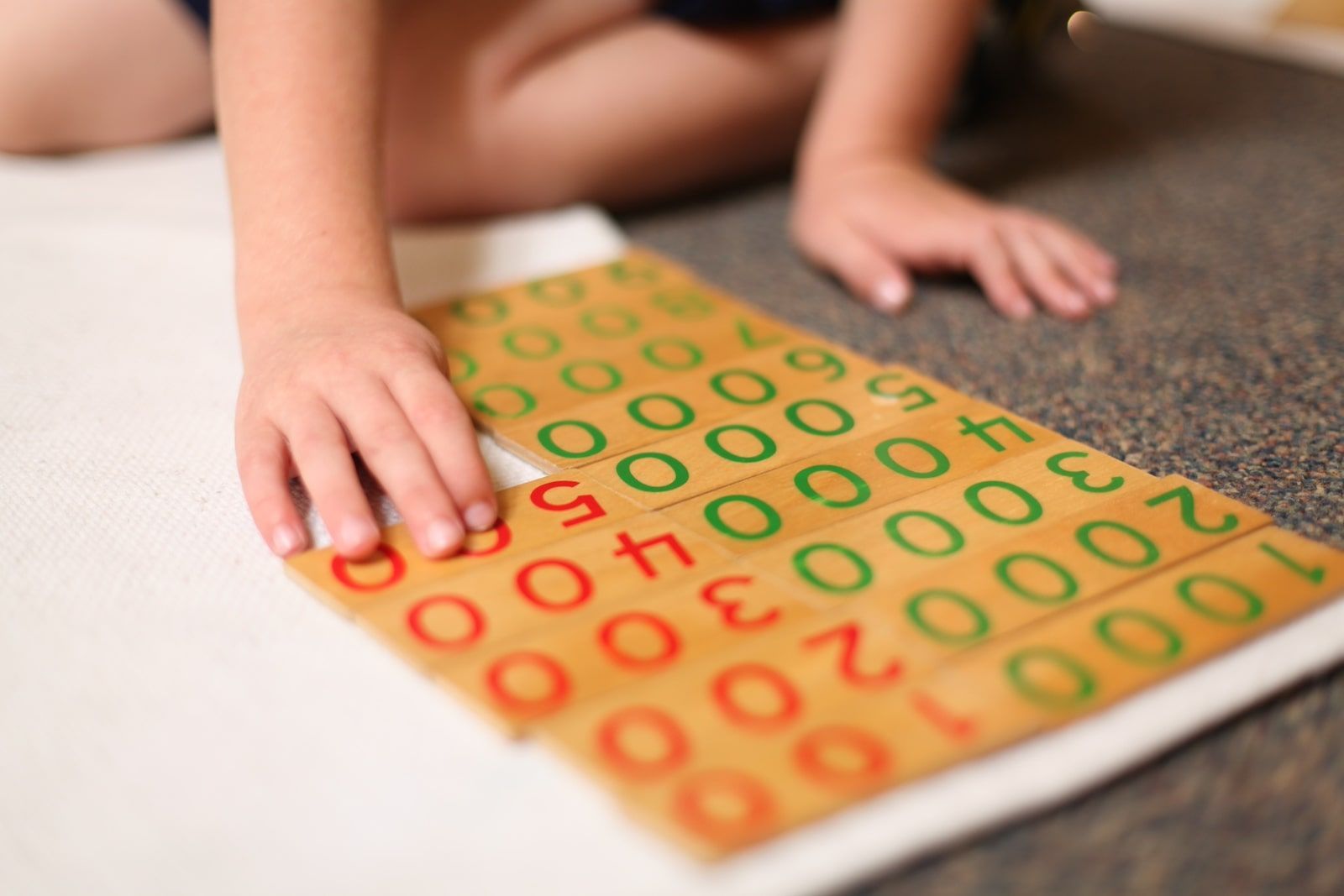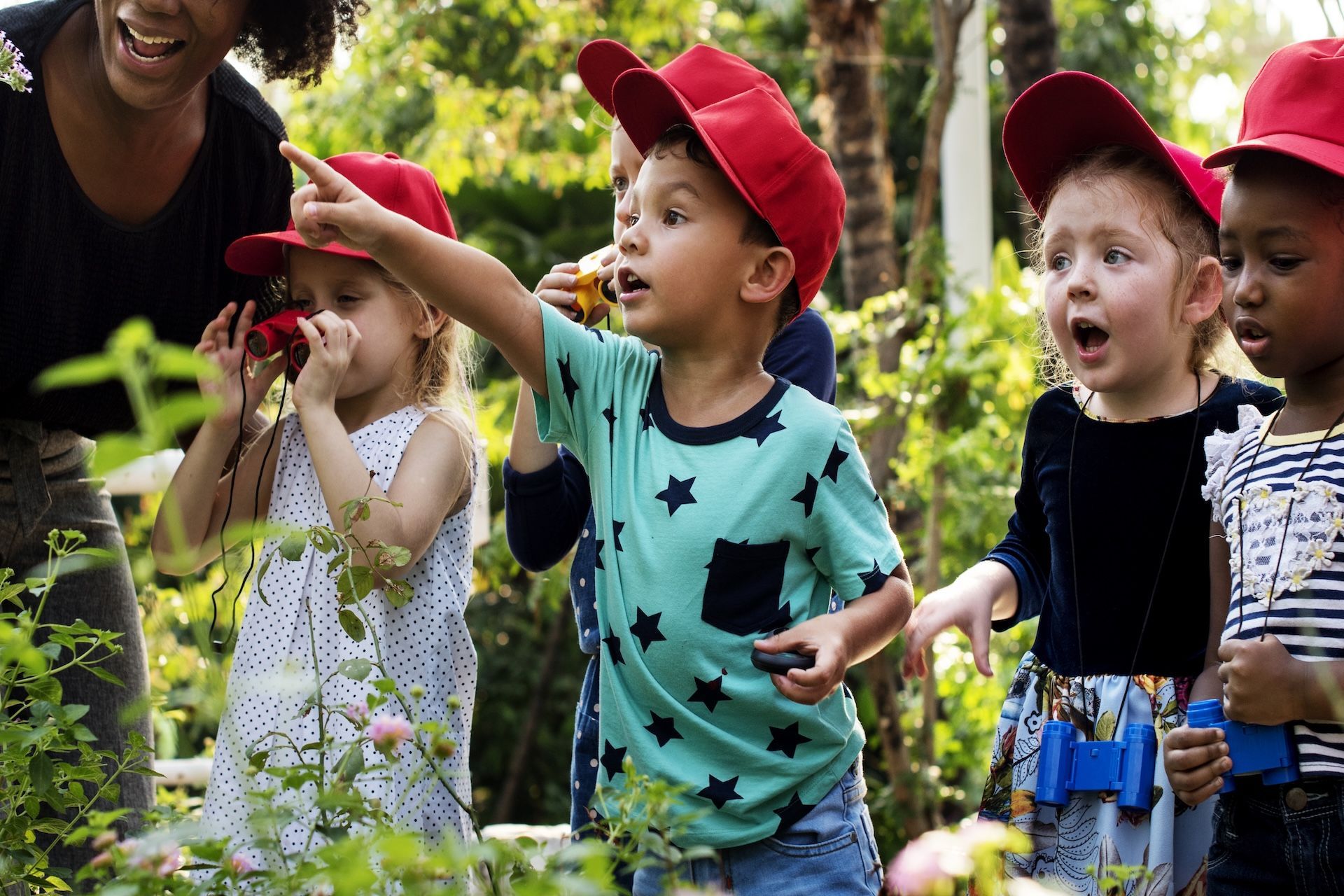From Independence to Interdependence
Explore how each stage of Montessori development nurtures independence as a step toward interdependence, purpose, and meaningful connection.
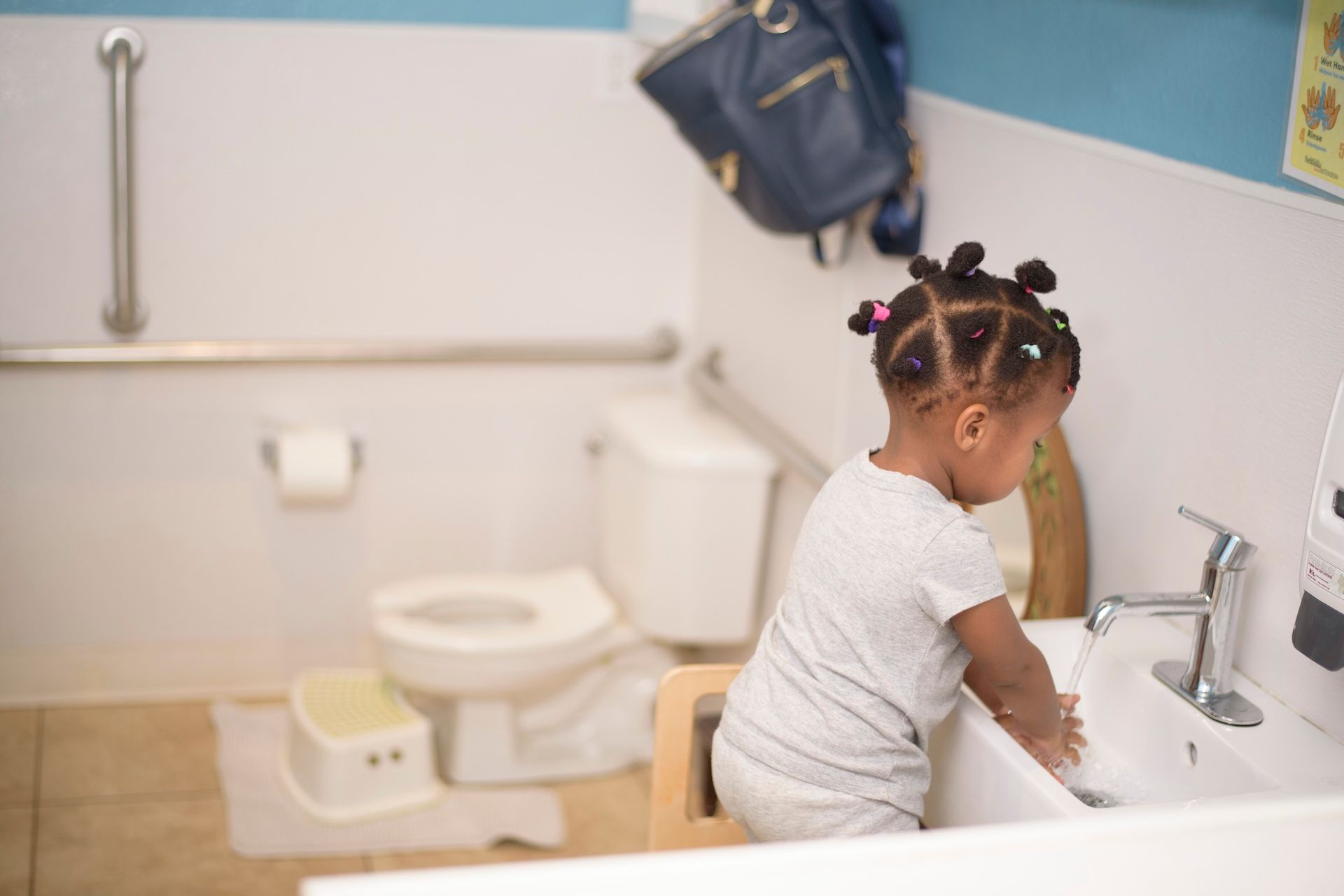
As we help our children learn to navigate the world, we are supporting their journey toward independence. In Montessori, we often emphasize the importance of independence. But did you know that independence isn’t the end goal?!
Our Children’s Journey
Dr. Maria Montessori observed four distinct planes of development, each representing a stage in the human journey toward greater maturity, independence, and ultimately, interdependence. At each stage, children have specific developmental needs and characteristics, and our educational approach evolves to meet them.
A core element of Montessori education is the prepared environment, a carefully designed space that gives children the freedom to move, make choices, and act with purpose. This freedom within limits supports the development of a child’s personality. We become who we are through movement and choice. Independence, then, is not just about being able to do something alone; it is also about being able to do something independently. It’s about becoming oneself.
Yet, as humans, we don’t exist in isolation. We live amongst others, and in order to live effectively in community with others, we must first be able to function independently. Put another way, before we can offer help to others or make ourselves useful, we must first meet our own needs.
First Plane (Birth to Age 6): The Formation of the Individual
From birth, children begin the work of self-construction. During this stage, children are focused on adapting to their immediate environment. Infants and toddlers explore freely using movement and their senses.
This stage is all about gaining functional independence. By the end of this period, children can walk, talk, eat, and care for their bodies. They no longer rely completely on adults for basic needs and are ready to take their place in a social setting. And a Montessori classroom is just the place!
Dr. Montessori referred to this period as the “social embryo,” when children are just beginning to participate in group life and shape their sense of self.
In the classroom, we offer children endless opportunities to gain independence, such as zipping their own jackets, pouring their own water, and preparing a snack. We also provide opportunities to care for others and the environment. Once children master the skill of pouring, they can use it to beautify the classroom by pouring water into a vase for flower arranging. After learning to sweep, they’ll notice a spill and take initiative to clean it up. When a friend needs help with their coat, they’re eager to step in and assist.
Caring for oneself and for others lays the foundation for a life of contribution.
Second Plane (Ages 6–12): Intellectual and Moral Independence
In the second stage of development, the focus shifts from physical to intellectual exploration. Children begin to ask big questions: “Why?” “How?” “What if?” Their imagination and reasoning take center stage, and their curiosity is boundless.
Socially, this is a period of intense peer interaction. Children form close friendships, work collaboratively, and begin sorting out moral questions of right and wrong. Montessori described this as a “practice society,” a safe space where children rehearse the roles and responsibilities of adulthood.
While the first-plane child says, “Help me do it myself,” the second-plane child says, “Help me think for myself.” Their independence becomes more abstract. They’re forming their own ideas, solving problems, and taking responsibility for their learning and behavior.
And in this intellectual and social freedom, we see the seeds of interdependence. Children might notice a peer struggling with a math problem and offer support. Or they might mediate a conflict between friends, using logic and empathy to help everyone feel heard. Their developing independence becomes a tool for service and connection.
Third Plane (Ages 12–18): Social and Economic Independence
In adolescence, the need for independence takes a new form. Teenagers want to understand their role in society and make real contributions to the world. They’re seeking both social and economic independence, and they need real, meaningful work to meet this developmental drive.
Montessori adolescent programs are designed to meet this need. Adolescents might run a small business, grow food, engage in community service, or take on leadership roles. These experiences enable them to apply academic skills in real-world contexts, from writing marketing plans to managing finances and collaborating with others. In doing so, they are learning how to live and work in a complex society.
This is the point at which all earlier experiences of independence converge. Teens apply their knowledge and skills in the service of others. They’re discovering what they can offer the world and who they are becoming in the process.
Outcomes: Maturity, Independence, and Interdependence
Ultimately, Montessori education supports three interconnected outcomes: maturity, independence, and interdependence.
Maturity goes beyond academic achievement. It’s the holistic development of a person capable of making a meaningful contribution to the world. Independence, evolving across each stage of development, is essential to this process. But independence is not the final step. True maturity culminates in interdependence, the natural, collaborative state of human life.
Why This Matters
Every act of independence, from an infant grasping a rattle to a teen managing a group project, is a step toward full participation in human society. These conquests matter.
So, when your toddler insists on putting on their shoes, when your eight-year-old argues about fair rules, or when your teenager wants to solve a conflict without your help, pause. Remember that these are not just frustrating moments. They are signs that your child is on the right path.
Because in Montessori, independence is not the goal. It is the means toward interdependence and a life of meaningful work, mutual respect, and connection to others.
Come visit us here at LakeCreek Montessori School to see independence and interdependence in action!

